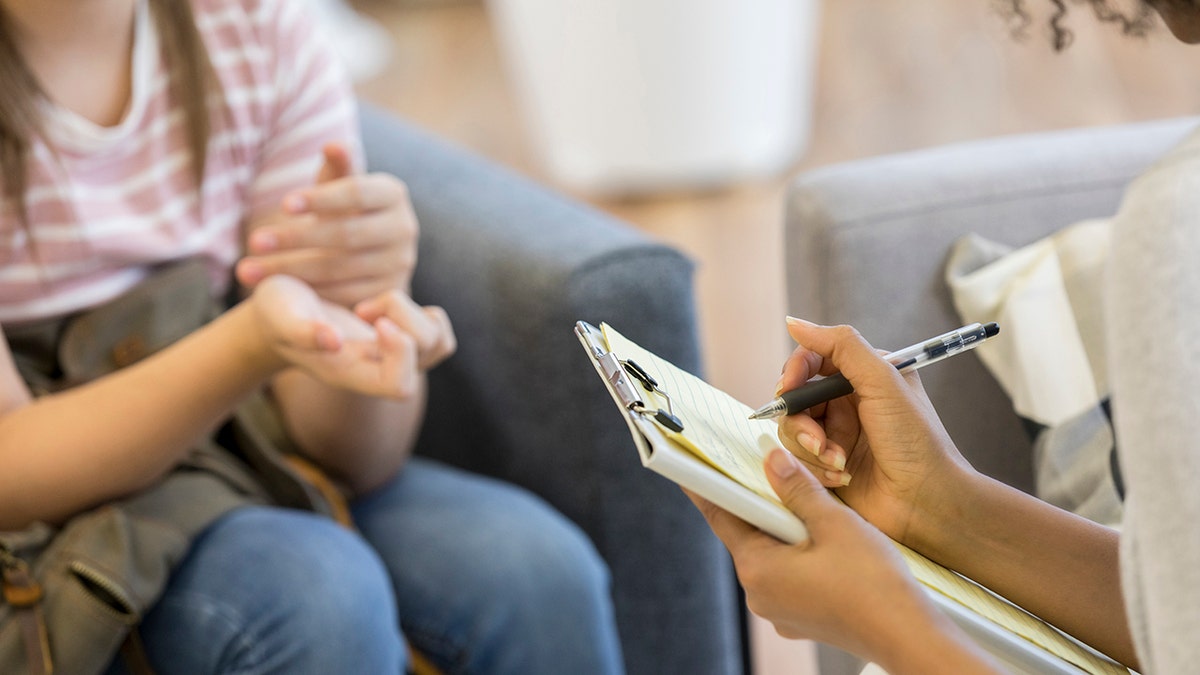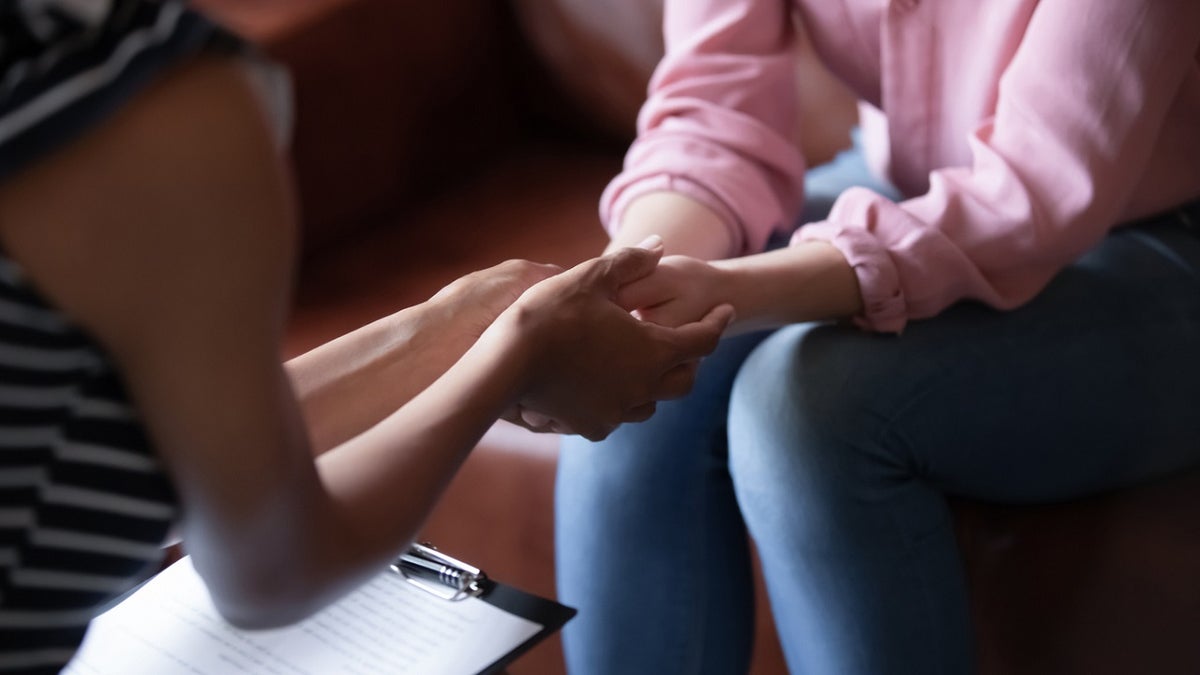Psychiatrist discusses 'mental health toll' on isolation amid pandemic
Dr. Daniel Bober and Florida Rep. Byron Donalds discuss how the pandemic is affecting mental health across America on 'Fox News Primetime.'
Nearly everyone has had that moment when you’re feeling unwell and look up your symptoms online, only to panic a few minutes later when you notice the symptoms sound similar to a more serious ailment. Something similar is now happening on social media websites like TikTok, but instead of naming physical symptoms, people are listing signs of rare mental disorders.
Psychologists and mental health professionals are ringing alarm bells to warn that these user-created videos should not be taken as a diagnosis.
"People can easily be convinced that they have a rare disorder based only on what they see on social media," said John Delatorre, a licensed psychologist who practices in Arizona and Texas. "Similar to those who strictly adhere to comments about astrological signs, the general nature of describing the symptoms of a mental disorder can make it so that people will apply that generality to their own behaviors."
PEOPLE PEELING RAW EGGS HAS BECOME A VIRAL TREND ON TIKTOK
Delatorre went on to note that people tend to feel more comfortable getting their information from sources they deem "credible" – which can range from age, appearance and other physical aspects.

Psychologists and mental health professionals say social media users shouldn't blindly believe viral videos that claim untrained people can recognize the signs or rare mental disorders. (iStock)
"People listen to those they are similar to and if they find someone on social media that speaks to them in a language they understand, the person is more likely to believe whatever that person says," Delatorre said.
While this isn’t always a problem when certified mental health professionals provide general life skill tips, it becomes a potential danger when untrained people deliver amateur armchair diagnoses.
PEOPLE ARE TURNING TO HORSE THERAPY TO IMPROVE MENTAL HEALTH DURING THE PANDEMIC
Rare mental disorders like borderline personality, bipolar and dissociative personality disorders have dedicated hashtags with billions of views attached to them when in reality these disorders have been professionally diagnosed to less than 3% of the global population, according to multiple studies from the National Institute of Mental Health.
Statistical reports published by the National Institute of Mental Health show that anxiety and depression are far more common diagnoses in the U.S. Current stats estimate that 31.1% of Americans will experience an "anxiety disorder at some time in their lives" while an estimated 19.4 million American adults experienced "at least one major depressive episode" in 2019.

Social media users who claim to have been diagnosed with or have a close relationship to someone with a rare mental disorder have been sharing their experiences online, but experts say generalizations can't substitute for an actual consultation or diagnosis. (iStock)
VIRAL PIZZA HACK HELPS YOU GRAB SLICE WITHOUT TOUCHING THE REST OF THE PIE
"Social media can absolutely influence individuals, especially when symptoms feel similar, and without much explanation or formal assessment," said April Krowel, a licensed clinical neuropsychologist at The Brain Center. "My practice has seen an uptick in people of all ages requesting appointments because of something they saw on TikTok, specifically."
Even though Krowel does see issues with social media diagnoses, she told Fox News Digital that "it can be positive by bringing more awareness to ‘hidden’ disorders that people are living with."
CLICK HERE TO GET THE FOX NEWS APP
When people don’t seek a professional consultation about the mental disorder symptoms they’ve heard about, they are often left confused or misled. The end result could potentially leave a view worse off if the content creator in question has oversimplified, incorrectly reported or outright falsified firsthand accounts or diagnoses.

Mental health professionals recommend seeking out help from trusted sources who are licenses, certified or have a doctoral degree. (iStock)
"Mental health professionals would be doing a thorough assessment comparing and contrasting someone’s difficulties across a range of contexts – such a diagnosis would usually involve a very lengthy assessment, not a 3-minute conversation," said Dr. Naomi Murphy, a forensic psychologist and co-founder of Octopus Psychology. "If you’re genuinely concerned about your mental health please seek out a mental health professional."
CLICK HERE TO SIGN UP FOR OUR LIFESTYLE NEWSLETTER
A TikTok spokesperson told Fox News Digital, "We care deeply about the well-being of our community, which is why we continue to invest in digital literacy education aimed at helping people evaluate and understand the content they engage with online. We strongly encourage individuals to seek professional medical advice if they are in need of support."

